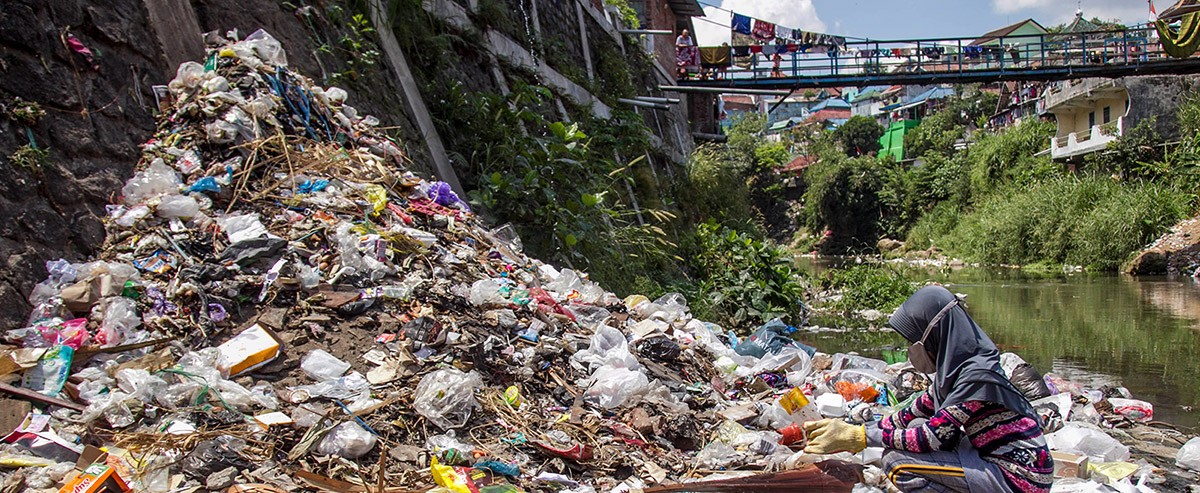Asia does not want our plastic anymore
Asia does not want our recycled plastic anymore
The rivers in Southeast Asia are among the most polluted in the world. But some of the waste comes from Western countries. China and Malaysia have had enough and are taking measures to ban the import of plastic waste. Supervision in European and American ports is weak, so waste traders have more or less free rein. And they are now looking at other Asian countries that are less strict, such as Indonesia. Here, plastic imports more than doubled between 2017 and 2018, with the Netherlands as one of the top five sources, according to the International Trade Center. And these numbers lack the plastic that is illegally smuggled via paper waste. Waste destined to be recycled in Indonesian paper mills.
In 2017 by the Indonesian NGO ECOTON researched the paper waste imported by eleven large paper mills in East Java. Between 20 and 40 percent of this illegal waste was actually plastic. To dispose of the waste, the paper manufacturers hire middlemen – according to the Global Alliance for Incinerator Alternatives (GAIA) also referred to as the ‘mafia’. They offer the waste to local communities, who are able to make a nice extra income from the waste by reselling the good quality plastic to recycling factories.
According to Nina, more and more paper mills are also dumping their plastic waste directly in neighboring villages. Nina is Youth Activist at Ecological Observation and Wetlands Conservation (ECOTON), an organization that has been fighting for more than twenty years to protect the water resources and biodiversity in and around the river Brantas, the longest river in East Java.
ECOTON has been researching microplastics in the Brantas river since 2015 with students and schoolchildren. The river provides drinking water for more than 15 million people in East Java. The plastic particles have been found in residents’ drinking water supplies and in fish bellies.
To be fair, some of the microplastic waste comes from local household waste that is dumped in the river. There is still much to be gained here by local organizations. For example, by providing better waste systems and environmental education about the damage that the dumped waste causes to the health of local communities and the biodiversity in the river.
But Western countries must take their responsibility and clean up their waste themselves.


